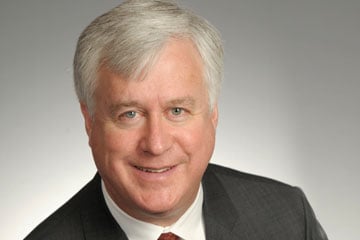
A group of lawyers has launched an independent campaign questioning the requirement for members of the profession in Ontario to sign a statement of principles.

A group of lawyers has launched an independent campaign questioning the requirement for members of the profession in Ontario to sign a statement of principles.
The website — stopsop.ca — is the latest challenge to the move by the Law Society of Ontario to have lawyers sign a statement of principles, as part of equity, diversity and inclusion requirements.
Six lawyers from the London, Ont. area launched the site last week.
It began after a bid to have lawyers be able to declare themselves “conscientious objectors” to signing the statement failed in December, after being defeated in a vote by benchers at Convocation.
The group has purchased advertising publicizing their opposition to the requirement and pointing people to gather more information about the requirement from the website.
“The purpose of the website is to invite participation from lawyers in the profession to voice their position, if they agree with prompting that there’s something flawed with the EDI initiative generally or specifically with the statement of principles, and they want to voice that they oppose or dissent or have problems with that initiative,” says Michael Menear, a senior associate at Menear Worrad & Associates and one of the six members of the core group behind the website. He says he’d personally like to see a reversal on the mandatory requirement in its current form.
“If lawyers want this initiative to go through and there’s no outcry, so be it, but we think we should be concerned . . .” he says.
According to the LSO, “all licensees are required to adopt and abide by a individual Statement of Principles that acknowledges their obligation to promote equality, diversity and inclusion generally, and in their behaviour toward colleagues, employees, clients and the public.”
“As with all Law Society obligations, licensees must satisfy themselves that they have complied,” said the LSO.
As of midday Monday, there were more than 600 people (some anonymous) who had signed up on the stopsop.ca website to “oppose the compelled speech requirement of the Statement of Principles.”
“I [have] better things to do with my practice, frankly, than do something like this, but we saw this as a necessity because there wasn’t a central resource that a lawyer could go to quickly to consider the ramifications of the EDI initiative,” says Menear.
“[I]t’s an information site, and we’ve been very careful to make it that focus, so we’re not attacking the law society, we’re not attacking individuals, you won’t see any satire, you’ll see an approach that we want information out there to the legal community because we don’t think . . . we were given the whole context in which this EDI initiative arose and what the consequences are.”
The stopsop.ca website indicates to lawyers that as part of their annual reports, which are due March 31, they can check “yes” or “no” to a portion asking if they abide by the statement of principles and provide more explanation, such as saying they object and “believe it to be unconstitutional.”
“It is correct that we have a duty not to discriminate on prohibited grounds, but there is no positive legal duty to promote equality, diversity and inclusion,” states the stopsop.ca website. “The law society is effectively forcing lawyers to do something which it has no legal basis to require.”
The LSO has already said that there will no penalties this year for not complying with the statement of principles requirement, but the regulator will likely send letters to those who do not sign, noting they are not in compliance.
LSO treasurer Paul Schabas says he was “disappointed” to see the emergence of the site.
“[I]t seems to be sort of an anonymous advocacy site that seems to want to deny that there is a problem in the profession, when the evidence — as Convocation clearly felt — clearly shows there is a problem,” he says.
The statement of principles requirement was part of a response to a report released on issues faced by racialized lawyers, he says.
“Convocation spoke very strongly again in the fall on supporting a requirement on the statement of principles and, as we said then, we’ll be reviewing it in a couple of years, as we review everything that we’re unrolling as part of the report,” says Schabas.
“There’s a whole bunch of recommendations and there’s lots of information that we’re going to gather from that. There are requirements that are placed on every licensee, not just the statement of principles, but other things, and we’ll be reviewing all of it in two years and beyond on a continuous basis to see how we’re doing in making our profession more diverse.”
Menear says that, in addition to the core group of lawyers that are part of the stopsop.ca campaign, there are another six to 10 members from across Ontario who contributed advice on the matter and support its goals.
“It’s not a done deal. The governing body isn’t completely united on this and this is still, I think, an important platform for the general membership to voice their concerns, if they have them . . .” he says. Menear wants people to continue reading the site, which he says will be updated with information in the future.
“We’re not closing shop on April 1; we’re going to monitor this over the next year or two and keep informing people on what this equity committee at the law society is doing.”